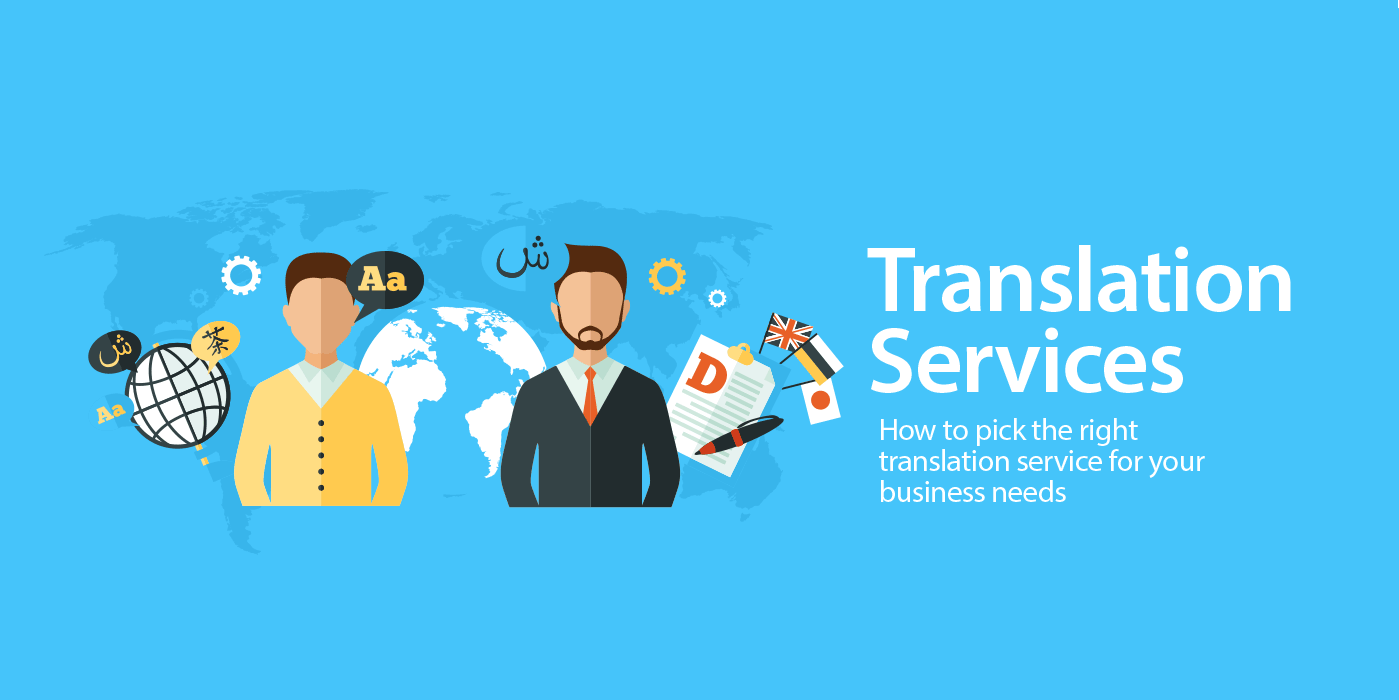How to pick the right translation service for your business needs
- Emily Feng
- February 16, 2016
- 14,574 views

Looking to buy translations? Good for you! As we have long advocated, getting your business and online content translated into multiple languages is a smart investment for the future growth of your company.
Now that you have made the decision to translate your services and content, you face the arguably harder challenge of finding the right translation service for your business needs. There are several hundred localization companies alone (industry organization Common Sense Advisory ranks the top 100 each year) and a countless number of translation services big and small out there for you to choose from. How should you go about winnowing through effectively thousands of options when going about buying translations?
1. How quickly do you need to finish your project?
In the unlikely case that your project is not time sensitive, you can afford to be more flexible with picking the right translation provider. Most businesses have demanding deadlines for completing translation projects, however. Everything from translating technical manuals or software interfaces to translating websites, blogs, or online content often needs to be tightly coordinated with a multi-country product launch or commercial venture. Making sure that the translation agency you are working with has experience coordinating a multilingual translation team around product launches is crucial.
Additionally, a few localization companies have developed their own technology software to speed up the translation process. Stepes for example employs a “Big Translation” approach through a mobile translation platform so their many translators can translate wherever and whenever. Other companies have introduced desktop software programs that can speed up translation of digital interfaces and graphics. Getting a sense of the technological tools each localization company offers in their services can give you an idea of how fast your time sensitive project can be completed.
2. Can the translation service or localization company handle the volume you need?
Translation services and agencies come in all shapes and sizes. Some may command tens of thousands of translators, such as term management network TermWiki, or perhaps employ only a handful of fulltime translators, each of which focuses on a particular language pair. If your company only needs translations from the original source text into one or two other languages, a smaller company may be able to give you the level of customized attention and care that you need. However, for larger projects, such as translating and reformatting a technical manual for a sophisticated technology product into fifteen major languages, a smaller company probably won’t be able to deliver high quality results efficiently.
3. Does your content require subject matter expertise or technical experience?
Certain translation projects may require expertise beyond simply knowing two languages. For example, translating legal or financial texts often requires hiring translators with backgrounds in the technical jargon employed in these texts. Similarly, technical writing or software and videogame localization see much higher quality results when clients work with translators who have at least some background in gaming, product design, or programming. Newer translation and language startups have even begun focusing on translating only user-generated content like short blogs, Tweets, and Facebook posts to serve clients who are looking for online reputation management support.
For specialized projects like these, look at what kinds of translators each translation agency is able to provide as well as any special focuses on certain industries of products. If you are a technology company, look for a translation provider who has the right tools and expertise. Likewise, if you need online marketing materials translated, look for a translation agency with an in-house creative and localization team with experience in your region of interest. Translation startup Stepes lets any bilingual subject matter experts translate from their mobile phone (as long as they pass certain translation competency standards) with the goal of solving the shortage of industry expertise among translators. In general, regardless of your particular requirements, ensure that the profiles of the translators you are working with match your needs.
4. Does the translation agency or localization company have experience working in the language pairs you require?
Language pairs refer to the two languages you want to translate between. English and Spanish, English and French, and English and German are very common language pairs required by clients. However, with markets opening up in Asia and Africa, more and more businesses now require source text to be translated into non-European languages. Especially for projects that require simultaneous translation in multiple language pairs, a common occurrence for global companies, make sure that where you are buying translations can coordinate this level of logistics.
Some companies specialize in translating all different languages into one particular language, such as Japanese, useful if you have a large volume of documents in multiple source languages that are geared towards one market. Another indicator to look at is both where a company is headquartered and where most of their clients are located. For example, CSOFT International, headquartered both in Beijing and San Francisco, has gained significant experience working in China, perfect for a business looking to expand from or into China.
5. Is buying translations within your budget?
Translation quotes for the same project can vary widely because of the different (and closely guarded) translation processes and translation memory tools that each localization company or translation agency employs. Ask for details as to how translation companies come up with their pricing models; how much of costs go to overhead, salaries, bureaucratic processes, and technology updates?
Importantly, a higher price does not always reflect higher quality but may in fact signify an outdated translation model or inefficient translation software tools. Stepes consistently provides lower translation price quotes for its clients – but we work hard on maintaining quality and reducing costs by eliminating overhead and automating smaller tasks like billing.
At the end of the day, doing your research is the best way to ensure that you pick the right translation company for you. Buying translations can be easy – if you work with the right company!












Hi there
I have read your article it is very to read , i am glad to read your article. I have been working
on translation , and your artcile might be more suggesive for me.
Thanks for sharing with us.